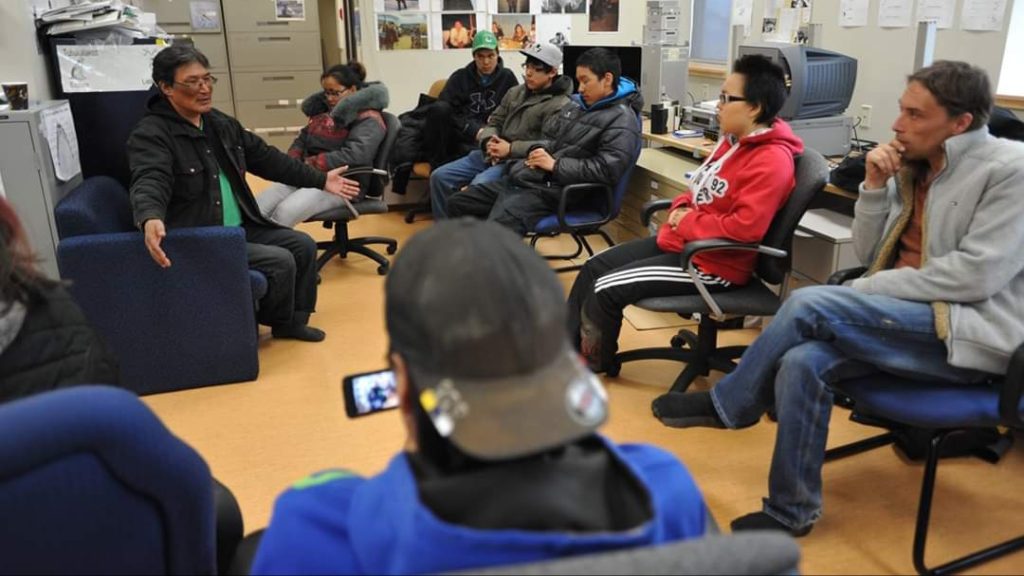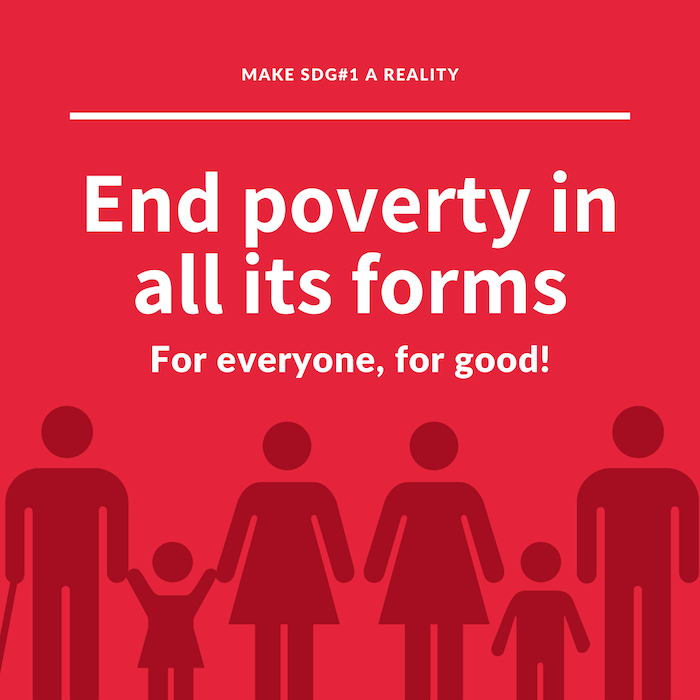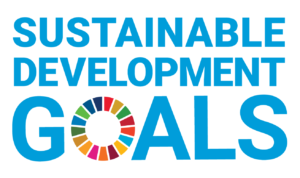by Andrea V. Breen, Ethan Tassiuk, Jamie Bell
Originally presented at Pathways to Resilience IV in Cape Town, South Africa, 2017
The kinds of stories that get told about individuals and communities contribute to shaping their understanding of themselves (e.g. Breen, McLean, Cairney & McAdams, 2016).
It is important that communities have the tools and skills to tell their own stories so that they have the power to construct and communicate their own identity. Arviat Film Society (AFS) has aimed to do this. It was a small, non-profit, youth and community-driven film society.
Since it was first established in 2010 its primary purpose has been to provide youth and community members with transferable skills in film, media and television, often through participation in community-based, participatory action research.
These experiences also incorporate group work and other approaches commonly found in social work practice, important elements to shaping participant experiences.
One of the Society’s key accomplishments, Arviat Television, was launched in November 2013 in partnership with Isuma TV’s Digital Indigenous Democracy Project. Driven largely by the youth themselves, this community-based television station delivers healthy, culturally-appropriate educational content and entertainment in the Inuktitut and English languages.
Participation in projects has been heavily influenced by three specific youth-identified goals aimed at fostering self-reliance, hope and resilience. The first goal, considered the most important by youth, was encouraging students in the community to stay in school and to graduate, promoting the value and importance of a post-secondary education.
Keeping youth engaged through storytelling, film and media studies, participation in community-based research, hands-on experiential learning, and early career exposure contributes to expanding their awareness of the education and career opportunities available to them. A key goal often overlooked involves emphasizing how participation can contribute to and enhance their potential for academic success.
The second goal, using film, television and emerging and social media (transmedia) to deliver messaging aimed at reducing bullying and suicide.
Youth involved with Arviat’s Film Society have made instrumental contributions to the success of dozens of visiting and community-based research projects. Youth are frequently engaged and employed by visiting researchers as research assistants. Content produced by the Society, through their own work in addition to those in partnership with researchers, are often used in schools and university classes across the country.
Arviat Film Society youth provide visiting researchers with concrete tools, technical and linguistic expertise, and valuable community connections needed for more effective community consultations. These relationships also represent critical links for disseminating knowledge within and outside of the community. They also provide researchers with valuable connections to the community because they often know who to go to and where to find what is needed. AFS youth also possess valuable skills that reduce the need to bring large research teams into communities. This benefits youth and community.
The skills, approaches and experiences gained can be be re-used, replicated and applied to future projects. It’s a two-way street.
The third goal was to share their stories and approaches in ways that would allow other communities to learn about how the work was done and how those approaches could be replicated for the benefit of other communities. Until recently, the majority of youth participating in the Society and the projects it has worked with have been high school students.
To reduce costs, to leverage available, and often limited community infrastructure, and to best realize its commitment to maximizing its resources and impact for the community, the Film Society has been hosted at John Arnalukjuak High School.
In addition to its work in film and media skills development and production, AFS has worked extensively with researchers. Youth-produced films have contributed to knowledge production and implementation in the community. Knowledge can be passed along. Youth develop skills in storytelling and are able to use those skills as a vehicle to share their stories.
Arviat Film Society has been developed as a model that ensures youth and the community are involved in knowledge generation, production and dissemination. It has given kids the tools they need to engage in real research that is important to them; grounded in their own culture; they are the creators and transmitters of stories, with power to decide what is relevant to them. It gives youth “ a voice”, one that can be heard in homes across Nunavut.
Arviat Film Society partners with research for a variety of reasons. Most importantly, research provides funding. With Arviat’s small population, limited economic opportunities and infrastructure, research funding provides opportunities to build capacity beyond scientific research by creating jobs, contributing to the academic success of participating students and youth, and providing exposure to careers and learning opportunities that often cannot be found in a small, remote Arctic community.
Ethan describes participation in projects as opportunities for youth to engage with their community in ways that make a difference.
“A lot of people go to dances, just walk around school doing nothing, people on welfare, people who don’t attend school. They don’t have any dreams at all. These things can help students go to school and maintain their attendance – because people need to learn.”
He also describes how these experiences contribute to developing role models that can encourage other youth to engage in shaping positive experiences for youth in their communities.
“You have to watch out for yourself. Being a role model, a lot of kids look up to you, and say you’re amazing, and you’re the best, and to be careful what you’re doing in your actions, because kids might follow in bad ways. Being a good role model is like pressure to me, so I keep myself busy and watch out for my actions.”
Sometimes it’s as simple as just being something fun for kids to do.





